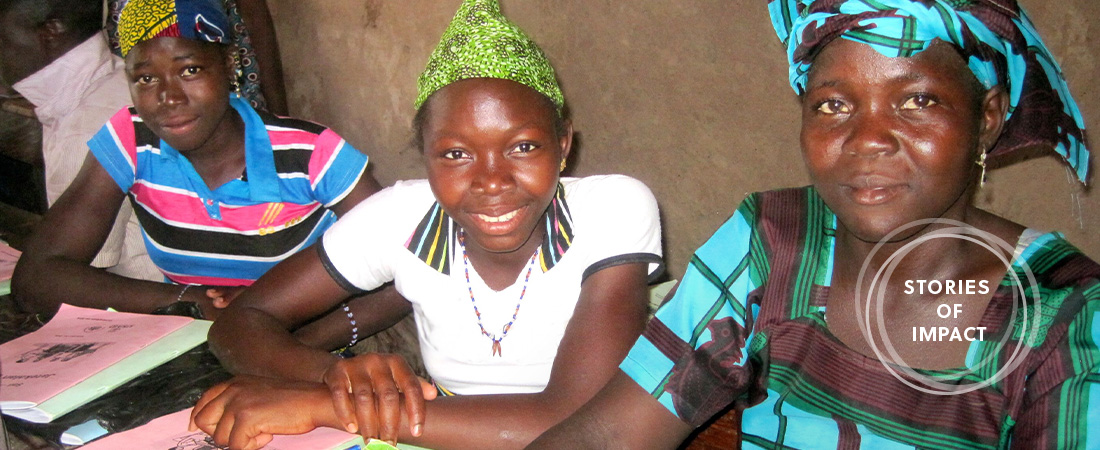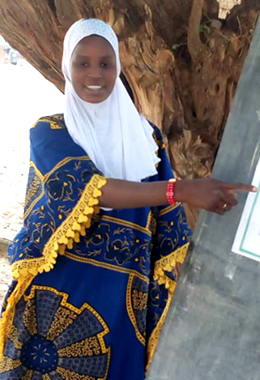Malian Women Seize a New Day

Salma Agbdou is striving to change old patterns. She was eight years old when her parents withdrew her from school to help more with domestic chores, such as searching for water and firewood, cooking, and cleaning. Her parents could not afford to send all their children to school, and they felt Salma needed to learn skills to prepare herself for marriage.
By age 14, she was married, with no hope of returning to school and no future she could shape for her own. But secretly, Agbdou met with her friends who were still in school and tried to learn from them. She was thirsty for knowledge.
Mali-ERSA-2.jpg

So when the USAID-funded Education Recovery Support Activity (ERSA) began activities in her area, Agbdou seized the opportunity to gather with other teens like herself and form a youth club. “It was a second chance for me,” she says. “Before these activities, I didn’t know how to read or write or do simple math. I didn’t know how to express myself or have confidence in myself or take responsibility for my future.”
In conflict-affected areas of northern Mali, basic education and other public services are severely limited. For girls like Agbdou, early marriage, early pregnancy, and domestic work negatively impact their access to and retention in schools. On average, out-of-school children and youth represent 73% of school age children, and 71% of girls in Mali are married by the age of 18. These patterns have been playing out for generations.
ERSA, implemented by EDC in the northern regions of Gao and Ménaka, engages communities to foster and support leadership, strengthen literacy, and increase civic participation. More than 11,000 out-of-school children and 2,800 youth have participated in ERSA, building their resilience amid conflict, interpersonal and communal violence, and extreme poverty.
Agbdou believes she has been on a journey to find herself. Through the youth club, she has engaged actively in informational training and coaching sessions and learned to address conflict, to engage local leaders and networks in changing harmful attitudes and behaviors, and to promote healthy choices that keep girls as well as boys in school longer.
“I want [other girls] to stay in school. I want them to become leaders in their communities,” Agbdou says. “I want them to have the knowledge to make informed decisions about their lives and the important matters of this community.”
Agbdou and other young women in her group also created a steering committee for the community. They help enroll children in the local school, monitor school enrollment and retention, and work to improve communication between the school and families.
According to Boubacar Bocoum, ERSA’s chief of party, the steering committee is building bridges in other ways, too.
“They are providing referrals to police and local hospitals now as a way to report incidents of violence,” says Bocoum. “We were really encouraged to see how these committees made links between leadership, gender-based violence, and education, and engaged with their communities to try and change thinking and address violence.”
The ERSA project is ending soon, but Agbdou and other women like her will continue to share their experiences and knowledge with others, adapting project tools and resources so they can serve the needs of their community, all while trying to create change in their own lives. Agbdou already uses what she has learned to help her own family.
“I tell my husband about my work. I share what I learn with him. I have convinced him how important it is for me to help other girls, to advocate for them,” she says. “He too sees how important it is for girls to stay in school, to learn, to have the skills one needs to survive.”
Agbdou hopes to one day start her own business. In the meantime, she is joined regularly by a growing number of women, who gather under an acacia tree to solve community problems and organize ways to foster positive change.
“We need to learn more and work together,” Agbdou says. “A girl is as capable as a boy. She has the right to dream and realize her dreams. Everyone needs a voice. We need to be the voice for ourselves as well as for others.”